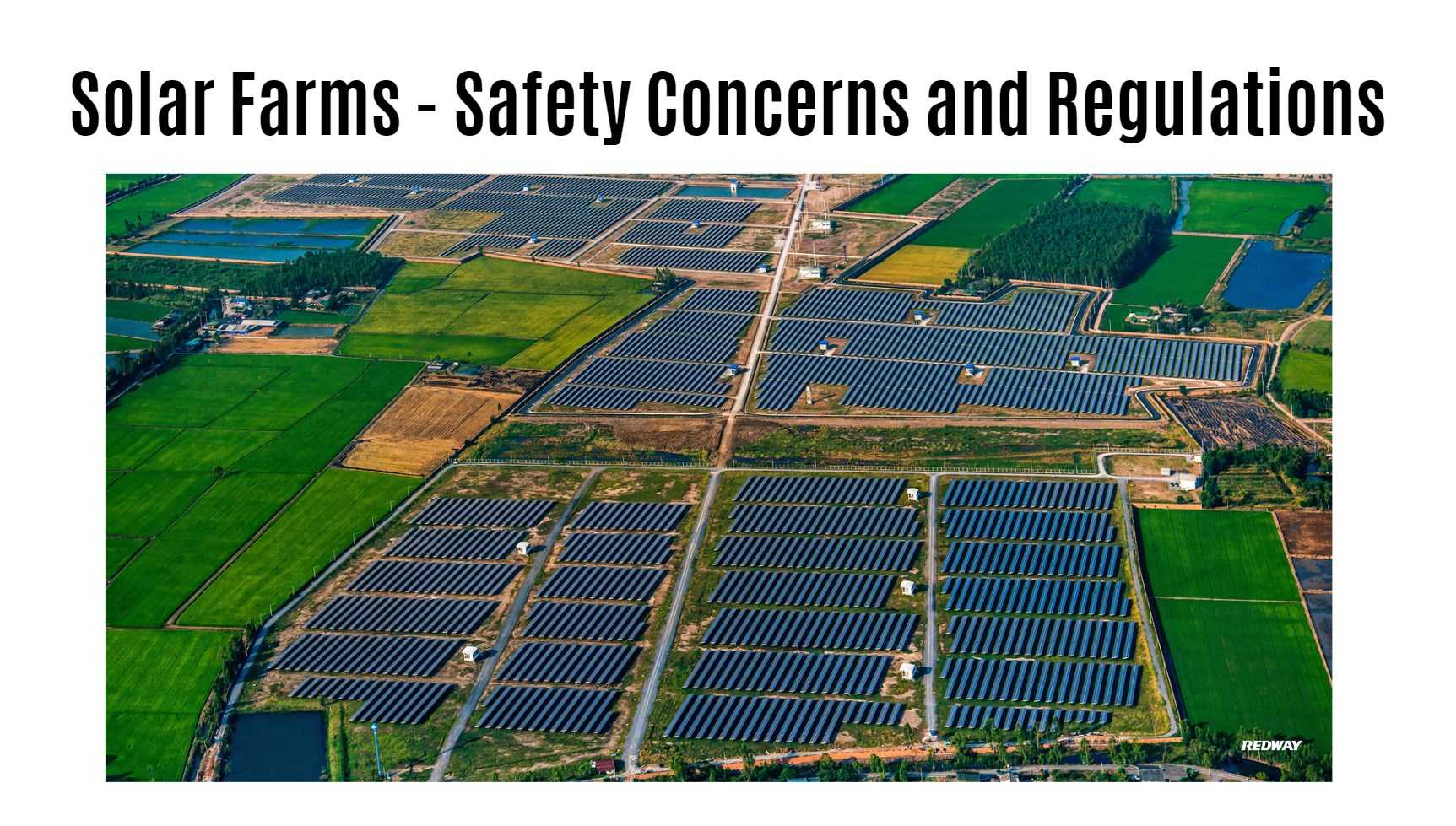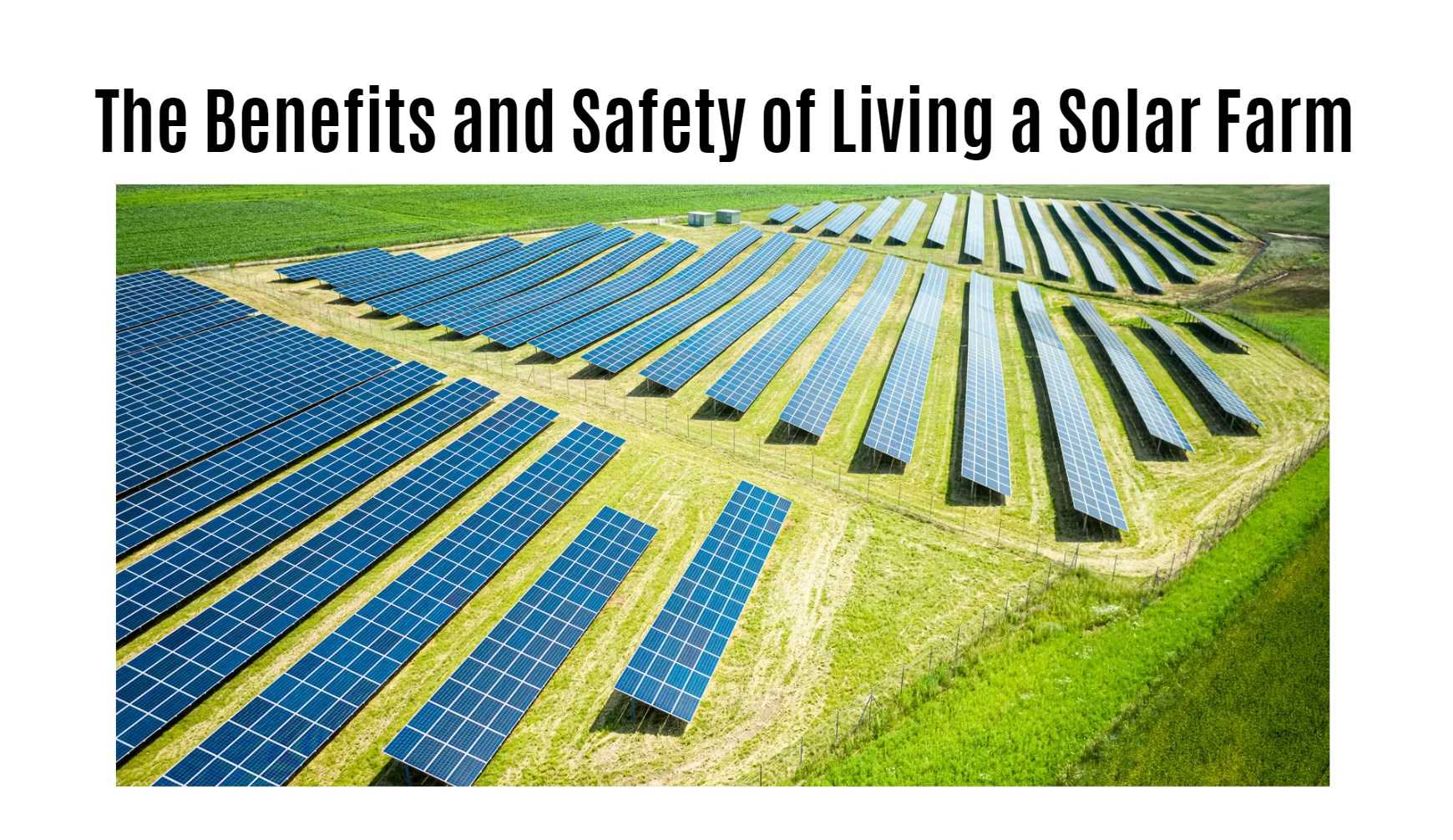Picture this: a field of gleaming solar panels stretching towards the horizon, harnessing the power of the sun to generate clean and sustainable energy. Solar farms are not just a sight to behold but also hold immense potential for communities living in their vicinity. In this blog post, we delve into the benefits and safety considerations of residing near a solar farm. Let’s uncover how these modern marvels are shaping our future!
How Solar Farms Work
Solar farms are vast fields of solar panels strategically placed to harness the sun’s energy and convert it into electricity. These solar panels, made up of photovoltaic cells, work by absorbing sunlight which then generates a direct current (DC) of electricity. To make this energy usable for homes and businesses, inverters are used to convert the DC into alternating current (AC).
The AC electricity is then fed into a transformer that increases the voltage so it can be transmitted efficiently through power lines. This clean energy is connected to the grid, providing renewable power to communities. Solar farms use tracking systems that allow the panels to follow the sun’s path throughout the day, maximizing their exposure and efficiency.
Solar farms operate silently without producing greenhouse gas emissions or harmful pollutants. Through this innovative technology, they play a crucial role in promoting sustainable energy solutions for a greener future.
Benefits of Living Near a Solar Farm
Living near a solar farm comes with numerous benefits that extend beyond just clean energy production. One of the main advantages is the potential for reduced electricity costs for residents in the vicinity. Solar farms contribute to lowering overall energy prices by adding renewable power to the grid, which can translate into savings on monthly utility bills.
Additionally, solar farms create local job opportunities during construction and maintenance phases, stimulating economic growth in the area. The presence of these facilities also promotes environmental sustainability by reducing reliance on fossil fuels and decreasing carbon emissions.
Furthermore, living near a solar farm can enhance community resilience by providing a reliable source of power independent from traditional centralized grids. This independence becomes crucial during times of natural disasters or grid failures when uninterrupted access to electricity is vital for safety and communication purposes.
Safety Concerns and Regulations
Safety Concerns and Regulations are essential aspects to consider when living near a solar farm. The safety of the residents is a top priority for both the developers and local authorities. Solar farms undergo rigorous inspections and must comply with strict regulations to ensure they do not pose any risk to nearby communities.
Regulations govern various aspects such as noise levels, setbacks from property lines, and emergency response plans in case of incidents. Additionally, measures are in place to mitigate potential hazards like fire risks or electrical issues. These regulations help maintain a safe environment for those living in proximity to the solar farm.
Regular maintenance and monitoring protocols further enhance safety standards, ensuring that any issues are promptly addressed. By adhering to these regulations, solar farms can coexist harmoniously with neighboring communities while providing clean energy for sustainable development.

Real Life Examples: Interviews with Residents Near Solar Farms
Imagine chatting with residents living near a solar farm. One homeowner might express how they enjoy the peaceful hum of solar panels quietly generating clean energy. Another might share how their electricity bills have significantly decreased since the solar farm was installed nearby.
Picture a local farmer mentioning how the land leased for the solar panels provides them with an additional source of income, helping sustain their agricultural business. A young family could talk about feeling proud to raise their children in an environmentally conscious community that prioritizes renewable energy.
Conversations with these residents reveal a common theme – living near a solar farm isn’t just about sustainability; it’s also about fostering a sense of community and contributing to a brighter future for generations to come.
Impact on Property Values
Living near a solar farm can have a positive impact on property values. As more people become environmentally conscious, properties located close to renewable energy sources like solar farms are increasingly seen as desirable. The presence of a solar farm in the vicinity may attract eco-friendly buyers who value sustainability.
Additionally, solar farms often occupy large open spaces that are well-maintained and aesthetically pleasing. This can enhance the overall attractiveness of the area and potentially increase property values for nearby homes.
Studies have shown that proximity to a solar farm may not only boost property values but also contribute to long-term cost savings for homeowners. The lower energy costs associated with living near a sustainable energy source can be an attractive selling point when listing a property.
The impact of living near a solar farm on property values is influenced by various factors such as location, market trends, and buyer preferences.
Conclusion
Living near a solar farm can bring numerous benefits to both the environment and the community. From reducing carbon emissions to providing clean energy, solar farms play a crucial role in our transition towards a more sustainable future. While safety concerns may arise, regulations are in place to ensure that solar farms operate safely and responsibly.
Real-life examples from residents near solar farms show that many people enjoy living close to these renewable energy sources. The positive impact on property values also highlights the growing acceptance and appreciation for solar farms in local communities.
Living near a solar farm not only contributes to a greener planet but also offers various advantages for those who call it their neighbor. With proper regulations and community support, embracing solar energy can lead us towards a cleaner and brighter tomorrow.




